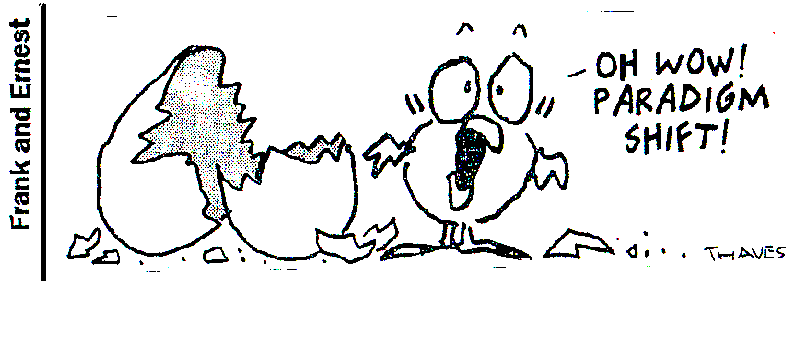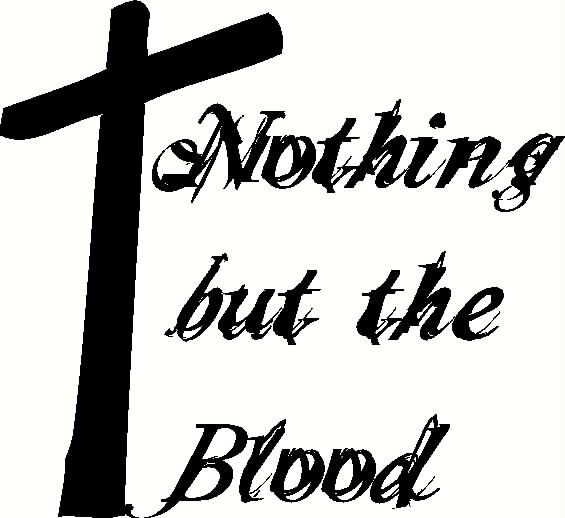I read a lot of books. In the past I have listed some of the books I am reading, and others that I will be reading. Admittedly, I wasn't able to finish some of those books for various reasons. Nevertheless, I have composed a reading list for myself for the year of 2011.
In total, I have listed 30 books, and divided them evenly between academia and fiction (15 in each category). What follows is my list, and the category titles before the genre. Enjoy!
Academic
As can already be seen from one of my recent posts, I am already reading
A History of God by Karen Armstrong, and enjoying it immensely. Part II of my review will be coming in the next couple of days, so look for it!
Robert Kiyosaki and Sharon Lechter put together this slim volume,
Rich Dad Poor Dad, to help people understand paradigms for money-making and money management in a modern world. I'm reading it because I have a lot of difficulty understanding how to manage money, and it is doubtlessly one of those things that
must be understood well if a person wishes to meet with even moderate material success.

This book,
The Evolution of God, is a book that I've been itching to read for quite a while now. My wife bought it for me for my birthday last year, and I've been waiting for the right moment to get started. Robert Wright is an excellent writer, and froma cursory breeze through the first few pages of this book, I know I'm in for an intellectual feast.

This massive book (1216 pages),
Christianity: The First 3000 Years, is a
tour de force through Christian religious history by the internationally acclaimed theologian and historian Diarmaid MacCulloch. I sold my outdated and horribly biased 8-volume history set by Philip Schaff just to purchase MacCulloch's 2009 publication. Personally, I think it was a wise decision.

Sally Fallon's critically acclaimed cookbook,
Nourishing Traditions, promotes whole, organic foods, and offers-up a veritable cornucopia of information about food composition, traditional preparations, and health information. A treasure waiting to be mined!
 Good Calories, Bad Calories
Good Calories, Bad Calories is Gary Taubes's seminal book on the fat-cholesterol myth handed down from the "experts" since the 1970's. It is an examination of the current Western diet, and evolutionary nutrition. Having begun this book just before Christmas '10, I can say it is an information-dense, critical examination of everything you might think you know about food and nutrition.

In 1859 Charles Darwin published a single book that, like the bible, shook the world. That book was
On The Origin of Species, and has formed the basis for the biological explanation of perrenial questions like 'How did we get here?' and 'Who am I?' I'm very much looking forward to steeping myself in the original thesis for our gradual evolutionary development.
 In Praise of Slow
In Praise of Slow is Carl Honoré's discussion on the "cult of speed" exemplified in American culture, and fast becoming the societal norm for most of the rest of the world. Honoré endorses the
Slow Movement and calls for people at large to slow down and live life, instead of just getting through it as quick as possible.

I could not find a suitable icon for David Suzuki's book,
The Sacred Balance, so I substituted with a picture of the Canadian celebrity scholar, and environmentalist activist instead. On my wife's recommendation, I will be diving into Suzuki's much lauded and sensitive view of living responsibly on this planet.

Frederick Copleston's masterpiece,
A History of Philosophy, is unrivaled in the Western world. The 9-volume set was originally published between 1946-1974, and covers all the major philosophers from the pre-Socratics to 20th century existentialists. I have all 9 volumes, but recently found out that two more volumes were included in the British publication covering Russian philosophy, logical positivism and existentialism. When money permits, I shall have to order the missing two books.

There is no question that Bart Ehrman's groundbreaking book,
Misquoting Jesus, will jar me and force me to face questions I've been slow in asking. Ehrman is a formidable scholar, and those who have read
Misquoting Jesus have been illuminated by the hard work of slogging through a long and obscure history of biblical redactions.

I encountered Elaine Pagels's academics when I was in seminary in 2004. Since then, I have been intensely interested in reading more than selections from her most famous book
The Gnostic Gospels. So, last year, in a rare moment of serendipity, I came across her book
Adam, Eve and the Serpent and bought it straightaway. Now I will be embarking on a wonderfully complex analysis of how Christian theology and politics had a widespread and damaging effect on human sexuality, especially via St. Augustine.
 The Empathic Civilization
The Empathic Civilization is Jeremy Rifkin's manifesto to the world to harness our empathy on a global level as a foil to the global entropy we're currently witnessing. Rifkin is a senior lecturer for the European Union, and is an internationally respected scholar and cultural commentator. I'm sure his book will be a hard-going challenge, and that I'll learn more than I'm presently anticipating.
Fiction and Literature
Fool's Fate is the sixth book of six dealing with a reluctant assassin who finds himself embroiled in a world of conspiracy, intrigue, and unwanted conflict. I have read the other five books in the series, and am a third of the way through the 900 page final volume. I highly recommend anything by Robin Hobb; she is a master fantasist of the highest order.
Ayn Rand's philosophy of
Objectivism is best expressed in her fictional books.
The Fountainhead was the first of her fictions to attempt an encapsulation of her view on life, morality, and rationalism. Rand, as I understand it, is a challenge for even the most studious reader, so I'm anticipating a paradigm shift or two in this fiction.

Hermann Hesse is one of my all-time favourite authors. Yet, I've never tackled his magnum opus,
The Glass Bead Game. Well, such a literary travesty cannot continue for me any longer. 2011 will see me lost in the raptures of Hesse's brilliance once more. I can't wait!

If you have ever read Stephen R. Donaldson's epic fantasy,
The Chronicles of Thomas Covenant, the Unbeliever and
The Second Chronicles of Thomas Covenant, the Unbeliever then you understand entirely why I would be very excited to read his duology
The Mirror of Her Dreams and
A Man Rides Through. Donaldson is easily equal to Tolkien in his ability to absorb his readers in a story, and unrivaled in the world of fantasy literature in weaving together so many different strands of plot so seamlessly, and effectively.

Fyodor Dostoevsky is recognised the world over for his intense psychological dramas, and unforgettable characters. Once a person starts in on one of Dostoevsky's works, there is no turning away. To do so is a sin. I am going to relish every moment between the pages of
The Brothers Karamazov.
Charles Dickens. Enough said.
Bleak House. Enough said.
Ayn Rand wrote
Atlas Shrugged in 1957, and since then the only book that has out-sold it is the Bible.
Atlas Shrugged is the consumate outline of
Objectivism. This is considered Ayn Rand's finest moment, her most clearly expressed philosophy on life, and it is wrapped up into one of the finest pieces of fiction ever written.
 The Gormenghast Trilogy
The Gormenghast Trilogy by Mervyn Peake consists of the titles "Titus Groan", "Gormenghast", and "Titus Alone." It is classed as gothic and surrealistic writing and details the lives and events of Titus and Steerpike, the main characters, as they grow-up in Gormenghast Castle.
It wasn't until I had read Christopher Hitchens's brilliant memoir,
Hitch-22, that I came across the name of Herman Wouk. Hitchens gives Wouk a few favourable words, which I took as instructive to look him up. So while I was at a local thrift store, I came across the very edition of Wouk's book
Marjorie Morningstar pictured on the left. So I bought it for $0.25 and will cast my lot in with Hitchens's brief but favourable recommendation, and read Wouk's fiction at some point this year.

Robin Hobb is one of the best-loved fantasy writers on the market today. And from having read a number of her books before (as I mentioned above with
Fool's Fate), I have no trouble understanding why: she is absolutely brilliant in all the ways a first-class author ought to be. With that in mind, I will venture gladly into the world of one of her latest trilogies,
The Soldier Son Trilogy. Three titles comprise the set:
Shaman's Crossing,
Forest Mage, and
Renegade's Magic.
All told, I will be attempting a 30-book year. In the past, I have been able to handle 30 books a year with no difficulty. I was less busy then than I am now. Still, I see no reason why I shouldn't be able to shore away some time over the next 11 months to continue reading through the list I've already started. As I progress, I will drop an occasional note onto the blog with some opinions, criticisms or reflections, as the urge hits me.
































